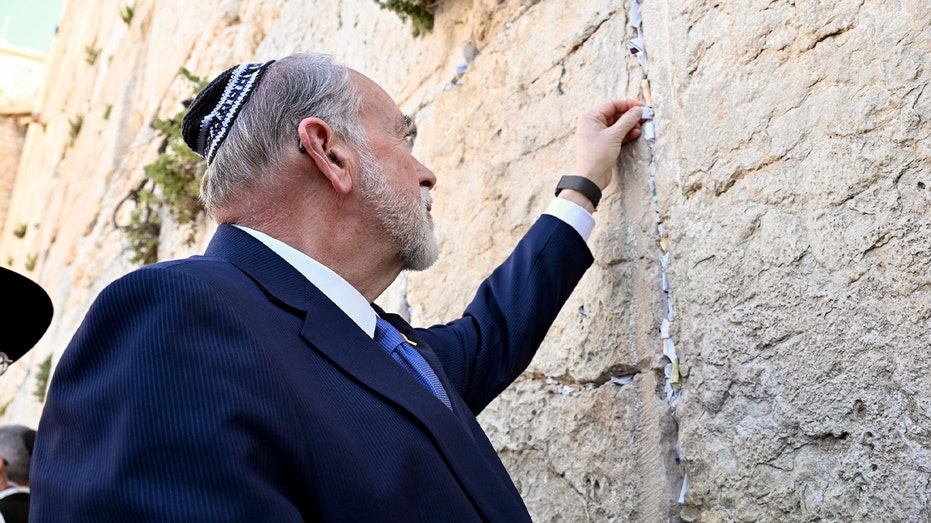Huckabee Condemns Attempt to Erase Jewish History in the Holy Land as ‘Absurd’
U.S. Ambassador Huckabee condemns efforts to deny Jewish historical ties to Israel, urging adherence to archaeological evidence.

U.S. Ambassador to Israel Mike Huckabee has called for renewed recognition of the Jewish people’s ancient connection to the Land of Israel, condemning international efforts to dispute this historic link as “absurd.” Speaking in Jerusalem during the Jewish festival of Shavuot, Huckabee cited ongoing archaeological discoveries that continuously affirm the longstanding presence of Jews in the region.
“Archaeology is a daily reminder of the connection between this land and the Jewish people going all the way back to 3,500 to 3,800 years,” Huckabee stated, referencing significant sites such as Shilo and Jerusalem. He emphasized, “The excavations at the City of David alone are a validation of the biblical record of what really did happen here. Sometimes people on the far-left love to say 'follow the science,' and I would say to them, as it relates to the land and the connections to the Jewish people, follow the science of archaeology.”
The ambassador’s remarks come amid increasing diplomatic friction over how history is represented in global forums. The Palestinian Authority has sought to revise historical narratives in international institutions, with recent high-profile examples including the UNESCO decision in 2016 to register Hebron’s Cave of the Patriarchs under the name “State of Palestine” and a 2021 U.N. resolution referencing Jerusalem’s Temple Mount solely by its Islamic name.
Doron Spielman, author and advocate for preserving Israel’s archaeological heritage, echoed these concerns, warning about attempts by the Palestinian Authority, Hamas, foreign-backed NGOs, and the United Nations to suppress evidence of Jewish history. “There are thousands of discoveries that prove the connection of the Jewish people to the biblical heartland,” Spielman noted, highlighting the unearthing of clay seal impressions—bullae—bearing the names of biblical figures Yehuchal ben Shelemiah and Gedaliah ben Pashhur in the City of David.
These artifacts, found near what is believed to be King David’s palace and dating to the period before the Babylonian destruction of Jerusalem in 587 B.C., offer tangible proof of Jewish administrative presence as described in the Bible. The bullae are now displayed in museums worldwide and serve as key evidence against claims seeking to disconnect Jews from their ancestral homeland.
Huckabee reinforced the notion that archeological findings repeatedly corroborate scriptural accounts and counter assertions that Jewish ties to the land began only in the 20th century. “Every time some new discovery is unearthed it validates the biblical record, so the proof is pretty strong that that connection is not something that goes back to 1948 or 1917; it goes all the way back to the time of Abraham,” he asserted.
Despite the mounting body of archaeological evidence, concerns remain about the public’s awareness—particularly among younger generations. Spielman expressed alarm over rising anti-Israel sentiment on university campuses, where students have adopted slogans denying Jewish indigeneity. “This expression comes from people taught to believe that the Jews have no connection to the Land of Israel, and I’m fearful because it leads to violence. When people come to erase your history, they are on their way to trying to erase you as a nation,” he warned.
As debates over history and sovereignty continue to play out both on the ground and within international institutions, advocates like Huckabee and Spielman maintain that acknowledging and preserving the historical record is essential—not only for Israel’s future, but for upholding the integrity of world heritage.




